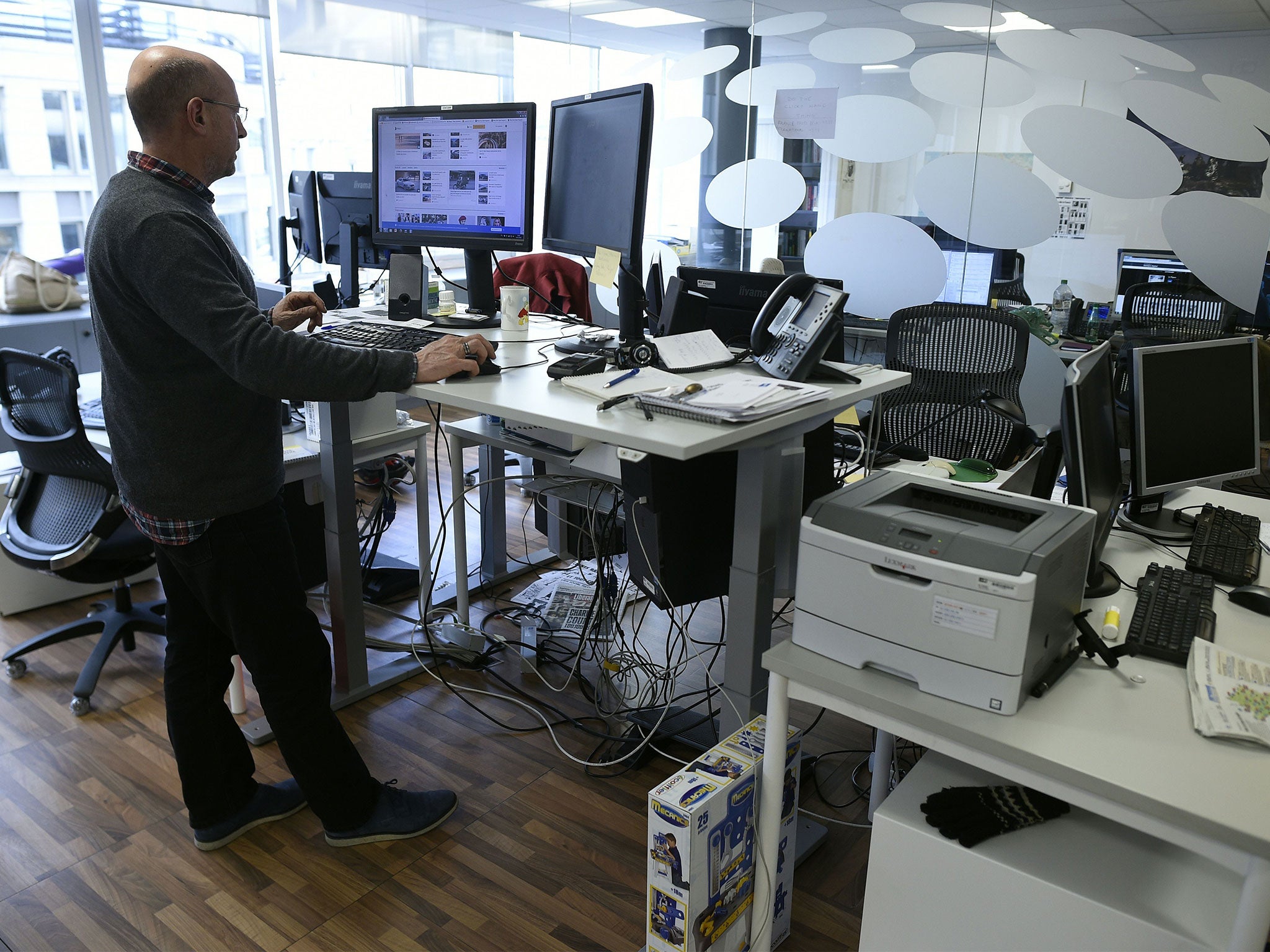Standing desks boost work performance, research suggests
NHS staff involved in study reduced time spent sitting at desks by more than 80 minutes a day

Standing desks have the ability to reduce tiredness among workers and boost productivity, a new study suggests.
Research published in the British Medical Journal (BMJ) follows trials involving 146 NHS staff, just over half of whom swapped their regular desks for sit-stand workstations.
The study found those who went from relatively sedentary work lives to standing more often reported better engagement with their work and fewer musculoskeletal problems.
Time spent sitting during the working day was measured at the start of the project, as well as at three, six and 12 month intervals.
After a year, those in the intervention group had reduced their time seated each day by almost an hour-and-a-half, compared with those in the control group.
“Occupational sedentary behaviour specifically has been associated with an increased risk of diabetes and mortality and musculoskeletal problems such as neck and shoulder pain,” said Dr Charlotte Edwardson, one of a group of scientists at the University of Leicester involved in the research.
The study found office workers are one of the most sedentary populations of workers, spending between 70 to 85 per cent of their time at work seated.
NHS staff taking part in the research were spending an average of 9.7 hours a day seated at the start of the study.
However, their sitting time was found to be lower by an average of 50.62 minutes per day at three months, 64.4 minutes per day at six months, and 82.39 minutes per day at 12 months.
The reduction in sitting during the study was largely replaced by time spent standing rather than moving, with the number of steps participants took during the day remaining largely unchanged.
Large amounts of time spent sitting has been increasingly highlighted as a potential health risk for office staff.
A study published earlier this year by Australia’s Deakin University found standing desks could boost life expectancy by reducing workers’ risk of conditions such as heart disease and type 2 diabetes.
In June, Apple chief executive Tim Cook revealed all workers at the company’s new California headquarters had been given standing desks, describing sitting as “the new cancer”.
Additional reporting by agencies
Subscribe to Independent Premium to bookmark this article
Want to bookmark your favourite articles and stories to read or reference later? Start your Independent Premium subscription today.

Join our commenting forum
Join thought-provoking conversations, follow other Independent readers and see their replies